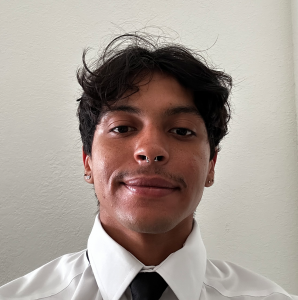
Last Spring, UCF GPII MENA fellow, Farah Shah, and Terrorism intern, Noah Mohammedelamien hosted an interview with non-resident fellow, Owen Kirby. Mr. Kirby has served as Regional Director for the Middle East and North Africa region at the International Republican Institute, as well as the former Director of Office of Transition Initiatives at USAID. Beyond those achievements, Mr. Kirby had also served as the Senior Governance Advisor for the U.S. Department of State in Kandahar, Afghanistan, exhibiting a prolific writing portfolio for the MENA region, its conflicts, and its implications for the future. Kirby’s interview offers perspective not only on the future of those pursuing careers in international affairs and diplomacy, but also on the experience and wisdom of a veteran of foreign aid during periods of global challenge.
Kirby reflected on the US foreign policy objectives in 2025 versus 7-8 years ago, especially from president to president. “Yeah, if I compare the Middle East, say up during the Biden administration and up toward October 7th, 2023,” he began, “for the preceding ten years, the U.S. was in a sort of mode of status quo maintenance.” He reflected on the Bush administration, particularly during the freedom agenda and the early years of the Obama administration, during the Arab Spring. To him, the freedom agenda represented an ambitious attempt to completely remold the Middle East. In contrast, during the latter end of the Obama administration to today, the United States focused on less titanic goals, trying to accept and protect the current status of the Middle East, its nations, and its borders. Kirby traced the curtailment of American ambition in the region to a variety of causes ranging from the wars in Afghanistan and Iraq, the costs of taxpayer funds, American lives, and the perpetration of poor domestic policies that could’ve been better funded with that money.
Kirby expresses the challenges of committing foreign aid without buy-ins or input from local communities to the detriment of all those involved. Kirby was able to draw on his own experiences, on the ground, in Afghanistan. He recognized that Afghans, after 20 years of low commitment from the United States, a previous 40 years of civil war, and hundreds of years of underdevelopment, grew tired, with the Taliban eventually able to strike back. He referred to these 20 years in Afghan history, while the Taliban bided its time, as “The American Interlude.”
Himself, having extensive experience outside of Afghanistan. Kirby reflected on his time in the Middle East, living 4-5 years in the region, including Syria, Kuwait, and even Saudi Arabia. His experiences brought him to extensively involve himself on Palestinian-Israeli issues. Notably, when asked about a piece in Modern Diplomacy, entitled, “Palestinian Reform Redux,” he focuses on “unaccountable and unpopular leadership” in the occupied Palestinian territories. Kirby explained that when it comes to the championship of a two-state solution, the United States needs to assess what will be currently viable as well as transparent and able to meet the needs of Palestinian citizens. He recalls the Oslo accords, the necessity of their prerequisites such as separation of powers, elected legislature, an independent judiciary, “These things have long passed,” he assessed. “It’s hard to imagine a two-state solution materializing anytime soon. 75% of the Palestinian population is under the age of 35, therefore, they were either not born or in infancy at the time that the Oslo Accords were signed. So, to ask the Palestinians today, ‘do you support a two-state solution?’- well it doesn’t really have much meaning.”
Kirby reflected on great power conflict and the shifting geopolitical landscape in the Middle Eastern corridor. Kirby referenced the motivations Russia has in the region and its natural resources. He also noted the uptick in Chinese investments in the Middle East, not just as a wealthy marketplace, but as a contributor to its belt and road initiative across the globe. Recognizing, especially during times of conflict, when looking at the power politics of countries like Turkey, Qatar, Saudi Arabia, or the UAE, “we look at the region sometimes as homogenous… But all of them have their own agendas.” Highlighting the loss of the U.S. as a conflict arbiter, he explains, “Syria, Sudan, Libya, and Yemen- what’s happening in these counties are proxy wars over regional influence and resources. And I believe this is a direct consequence of the U.S., for good or bad, retreating from the region.” His insight illustrates the lack of a strong American diplomatic figure in the Middle East, and that our recent policies have seemed to indirectly guide further instability and power vacuums, resulting in these humanitarian crises.
More personally, Kirby reflected on his time overseas, granting the best advice for someone who wished to fill his shoes or seek out similar opportunities. After completing his undergraduate degree, he studied across the Middle East- not only to learn Arabic, but also to gain expertise that later fueled his master’s studies and strengthened his professional portfolio. He explained, “So, I think you have to be willing, perhaps, to make decisions and take risks outside of your comfort zone, to distinguish yourself from others, perhaps, who are out there, trying to pursue similar career goals.” Reflecting on what guided him most, and what created his most fond memories, Kirby acknowledged his colleagues and friends. He warmly recollected, “If I go to the Middle East, I will often stay with them, rather than at hotels. I know their children; I now know their grandchildren… I could travel to a number of countries tomorrow and feel like I was maybe going home again.” For Kirby, the real excitement and fulfillment came from the lasting relationships he built among people overseas with common ideals. He cautioned that viewing work in a foreign country solely through a careerist lens, particularly found in American soft power or foreign aid, can undermine success if it is not grounded in shared ideals and a diplomatic outlook.